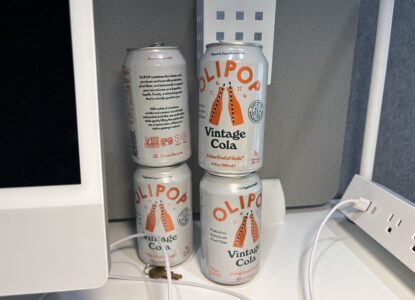Peter Attia vs. Valter Longo: How Much Protein Should You Eat Daily?
Article at a Glance
- With daily protein recommendations varying based on the source, it can be difficult to know how much protein to eat at each meal.
- Longevity experts disagree on the ideal protein targets to stay healthy as we age.
- For example, Dr. Peter Attia recommends twice the daily protein consumption of prolific longevity researcher, Dr. Valter Longo.
- Longevity enthusiast, Bryan Johnson, seems to lean more towards the Longo camp.

How much protein should we eat?
The question implies a standard that applies to everyone, but with leading experts in disagreement, there are no hard and fast rules (other than avoiding the carnivore diet). Of course, part of what drives your daily protein intake will be how hard you train. This is a topic that athletes in particular seem to focus on. In the hopes of providing a quick protein guide, I will share the views of two leaders in the longevity field, plus how a third influencer seems to be tackling the issue himself.
Out of the gate, the big question in my mind is how do we resolve the need for muscle mass as we age with the impact of the branch chain amino acids (BCAAs) and methionine on mTOR and cancer risk?
Here is the conflict – frailty seems to be one of the biggest risks as we get older, so building and maintaining muscle mass is a priority.
Animal proteins, with their bioavailable BCAAs, are especially effective anabolic agents for stimulating growth pathways that help us bulk.
The problem is that this cuts both ways – the same pathways that build muscle also stimulate cancer.
Important research from scientists like T. Colin Campbell and Valter Longo, the head of longevity at USC, which links excess protein with increased cancer risk, seems to have lost its influence in many of today’s nutrition conversations which really push the protein.
Longo is clear in his view – limit the BCAAs until age 65, at which time more animal protein (he suggests wild fish) should be introduced to maintain muscle.
He is in this camp to keep mTOR signaling low, which is why he advocates for a diet that primarily relies on plant proteins.
But there are competing points of view.
Peter Attia takes a more nuanced view. He acknowledges the role of mTOR in growth signaling but emphasizes that transient mTOR activation—such as that triggered by BCAA intake post-exercise—is short-lived and essential for maintaining lean muscle mass, which he sees as a critical determinant of healthspan in older adults.
Eggs, venison, and axis deer are all go-to protein sources for Peter Attia.
It’s all confusing right?
Longo, who is a prolific researcher, cautions against too much animal protein, especially in middle age.
Attia, who is not on the level of Longo in terms of research pedigree, but who is a very sharp physician, seems much less concerned.
Attia vs. Longo on Daily Protein Needs
| Issue | Attia | Longo |
|---|---|---|
| Ideal Intake | ~2.2 g per kg body weight (~1.0 g/lb) | ~0.8 g/kg (<65 yrs) (~0.36 g/lb), ~1.0 g/kg (≥65 yrs) (~0.45 g/lb) |
| 155 lbs person | 154 grams per day | ~56 grams/day (<65 yrs) ~70 grams/day (≥65 yrs) |
| Source | Animal based | Plant based |
| Philosophy | Need muscle mass as we age | Lower IGF-1 to reduce aging/cancer risks; more protein after 65 to protect muscle |
| Goal | Strength maintenance | Longevity, cellular protection |
Where does that leave us?
Let’s introduce a third influencer, anti-aging enthusiast Bryan Johnson.
Although he has expressed public concern over the horrific way our factory farming system treats animals, his Vegan protocol seems to side with Longo. Regardless of what he says about compassion for animals, Johnson still consumes collagen, which is not Vegan, and which is very low in both methionine and BCAAs.
Is that a coincidence?

Get Started With Personalized Nutrition
Gene Food uses a proprietary algorithm to divide people into one of twenty diet types based on genetics. We score for cholesterol and sterol hyperabsorption, MTHFR status, histamine clearance, carbohydrate tolerance, and more. Where do you fit?
You decide.
For what it’s worth, none of our Gene Food diet types are 100% Vegan, although several are very heavily plant based in their focus.
Where are you placing your chips?
Are you more concerned about excess protein, or loss of muscle mass?
Or maybe you are just enjoying spring and living in the moment which is probably the healthiest approach of all.



